Law and Order
Where Do Kamala Harris and Donald Trump Stand on Crypto?
Published
3 weeks agoon
By
admin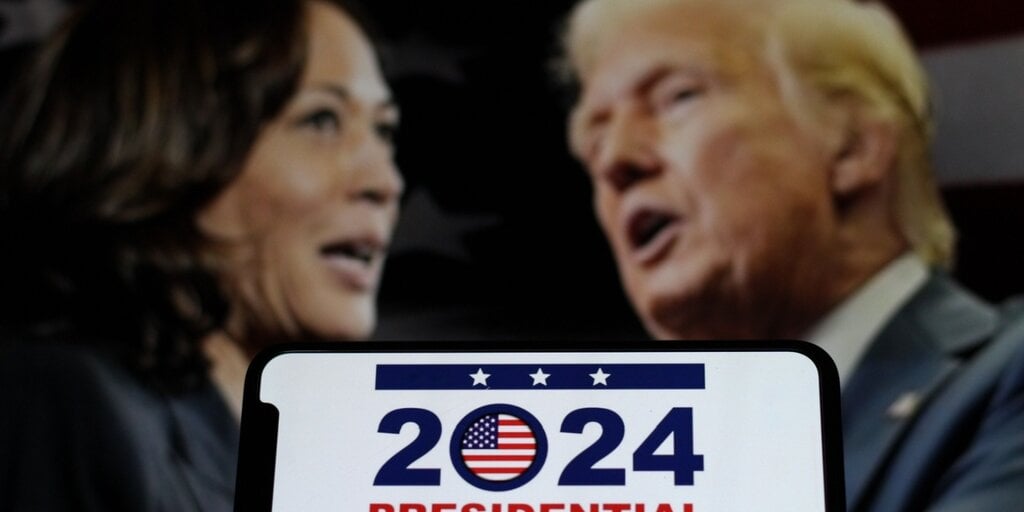
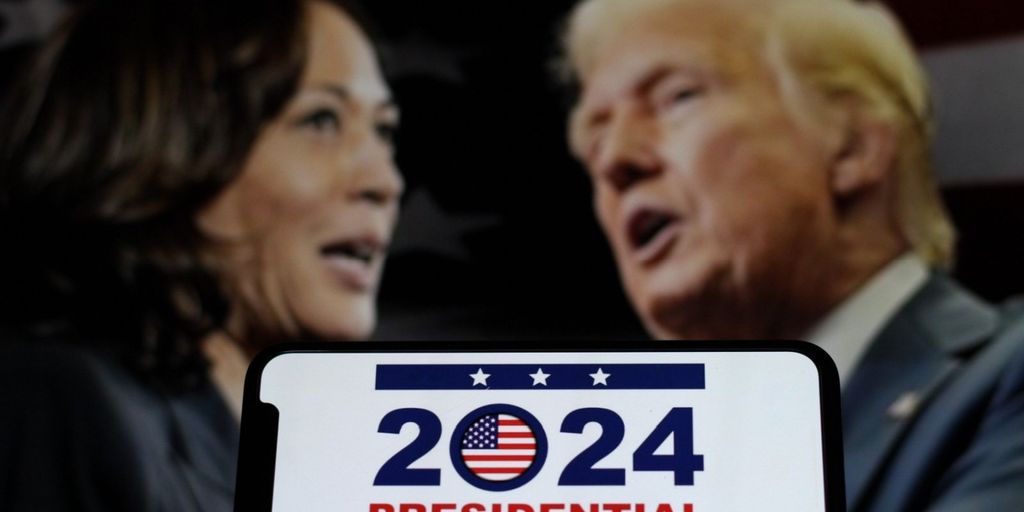
Neary 65 million Americans have already cast their votes ahead of next week’s election—and the race between the two candidates is tightening up.
Cryptocurrency has been a significant issue in the presidential race, with former president and Republican nominee Donald Trump pivoting from a skeptic to a self-proclaimed crypto candidate, while current Vice President Kamala Harris—who took over for President Joe Biden as the Democrats’ pick in July—has signaled an intent to break from the anti-crypto policies of the current administration in which she serves.
At Decrypt, we’ve been covering the ins and outs of the role of cryptocurrency in American politics throughout the entire election cycle. But with just three days left until Election Day, here’s a primer on where Trump and Harris stand on crypto, and what you might expect if either secures the win next week.
Donald Trump
Ex-President Donald Trump has been far louder than Harris on the topic of crypto.
Previously anti-Bitcoin and skeptical of the crypto space, the business and real estate mogul has taken a sharp U-turn on the topic, coming out as an advocate for the industry and picking up ample support and donations along the way.
I am not a fan of Bitcoin and other Cryptocurrencies, which are not money, and whose value is highly volatile and based on thin air. Unregulated Crypto Assets can facilitate unlawful behavior, including drug trade and other illegal activity….
— Donald J. Trump (@realDonaldTrump) July 12, 2019
Fast-forward to 2024 and Trump has released multiple sets of NFT collectibles, called for the Americanization of Bitcoin, and even has backed a decentralized finance (DeFi) project called World Liberty Financial alongside his sons. World Liberty hasn’t gotten off to a great start with prospective investors, though sources tell Decrypt that it plans to issue a stablecoin.
Like some other Republicans, Trump has railed against central bank digital currencies (CBDCs), or digital dollars—effectively government-backed cryptocurrencies that don’t yet exist in the U.S., but frighten the libertarian wing of the GOP and large parts of the digital asset space due to fears of increased government surveillance.
His promise to help Bitcoin mining—a big business formerly dominated by China, but now with a lot of American players—perfectly fits Trump’s fiery protectionist brand. As does his desire to fire crypto bogeyman Gary Gensler, the crypto-targeting U.S. Securities and Exchange Commission chairman.
Top executives in the crypto space have since backed Trump for his apparent passion for the industry, or at least his willingness to publicly engage with an industry that most politicians have avoided.
If elected to a second term, will Trump live up to his promises to protect crypto in the U.S. and advance the industry?
Kamala Harris
Democratic nominee Kamala Harris was initially quiet on the topic, and unlike Trump, certainly hasn’t been seen tossing burgers to Bitcoiners at a BTC-themed New York City bar.
But crypto is a part of the former attorney general’s agenda.
In October, Harris said she had plans for the space when a part of her “Kamala Harris Will Deliver for Black Men” platform included a commitment for specifically for the African American community.
A document for the campaign said it was for “supporting a regulatory framework for cryptocurrency and other digital assets so Black men who invest in and own these assets are protected.”
The framing proved controversial, particularly since it was arguably her most specific comments to date about crypto. But a spokesperson later clarified that such plans were intended for all Americans, and wouldn’t be limited by race.
That isn’t the only evidence that the crypto industry will fit into her presidential plans, however. Harris has said that blockchain, AI, and other emerging technologies will be innovated upon in America, and before that told donors at a fundraising event that she would encourage growth for the digital assets space in the country.
Billionaire businessman and crypto enthusiast Mark Cuban previously told Decrypt in July that the Harris campaign reached out to the former Dallas Mavericks owner with questions about digital assets. He later said the Harris camp was “far more open” to the space than the Biden administration—and he’s not the only crypto heavyweight who’s optimistic about Kamala.
Edited by Andrew Hayward
Daily Debrief Newsletter
Start every day with the top news stories right now, plus original features, a podcast, videos and more.
Source link
You may like


Crypto millionaires will be made by April 2025: 6 coins to hold


Cardano Price Hits $1 But Analyst Says This Is Just The Start


Legacy Media’s Transformation: Why Evolution Beats Extinction


Massive Ethereum Buying Spree – Taker Buy Volume hits $1.683B In One Hour


Ethereum lags behind Bitcoin but is expected to reach $14K, boosting RCOF to new high
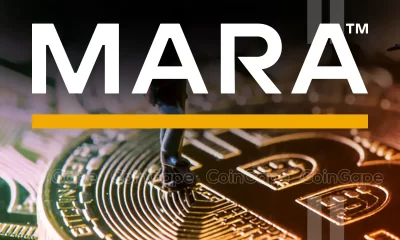

Bitcoin Miner MARA Buys Another 5771 BTC As Price Nears $100k
Law and Order
California Court Rules Lido DAO Members Can Be Held Liable Under Partnership Laws
Published
4 days agoon
November 19, 2024By
admin

A federal court judge ruled on Monday that Lido DAO, the governing body behind the popular liquid staking protocol, can be treated as a general partnership under state law.
The court rejected Lido’s claim that it isn’t a legal entity, classifying it as a general partnership and setting a precedent for how profit-driven DAOs are treated.
It was also ruled that identifiable participants were managing the DAO’s operations and, therefore, could not evade liability through its decentralized structure, according to court documents filed in the U.S. Northern District Court of California.
“[The lawsuit] presents several new and important questions about the ability of people in the crypto world to inoculate themselves from liability by creating novel legal arrangements to profit from exotic financial instruments,” Judge Vince Chhabria wrote in his ruling.
Paradigm Operations, Andreessen Horowitz, and Dragonfly Digital Management were implicated as general partners based on their alleged active involvement in Lido governance and operations.
However, Robot Ventures, another Lido investor, was dismissed due to insufficient allegations of active participation.
General Counsel and Head of Decentralization at a16z crypto, Miles Jennings, said Judge Chhabria’s decision had “dealt a huge blow to decentralized governance” in a statement posted to X on Monday.
“Under the ruling, any DAO participation (even posting in a forum) could be sufficient to hold DAO members liable for the actions of other members under general partnership laws,” he said.
What happened
According to court documents, plaintiff Andrew Samuels purchased LDO tokens on the secondary market in April and May 2023 through the Gemini exchange.
By December of that year, Samuels filed a class-action lawsuit after incurring losses from purchasing the platform’s native LDO tokens, alleging they were sold to him as unregistered securities, and held Lido DAO liable for the decline in their value.
On Monday, the court agreed with Samuels’ contention, finding Lido’s structure—where token holders govern decisions and earn from staking rewards—constitutes a general partnership under California law. It also found Lido DAO’s lack of direct token sales did not exempt it from liability.
“The courts have construed the statutory phrase ‘offers or sells’ broadly to cover someone who ‘solicits’ the purchase of securities. Samuels has adequately alleged that Lido indeed solicited the purchase of these tokens on crypto exchanges.”
Lido DAO functions as a general partnership, as it involves “the association of two or more persons to carry on as coowners a business for profit forms a partnership, whether or not the persons intend to form a partnership,” the court ruled, citing state law.
Edited by Sebastian Sinclair
Daily Debrief Newsletter
Start every day with the top news stories right now, plus original features, a podcast, videos and more.
Source link
Law and Order
Crypto Dad Giancarlo Denies SEC Job Rumors: ‘I’ve Already Cleaned Up Gensler Mess’
Published
1 week agoon
November 15, 2024By
admin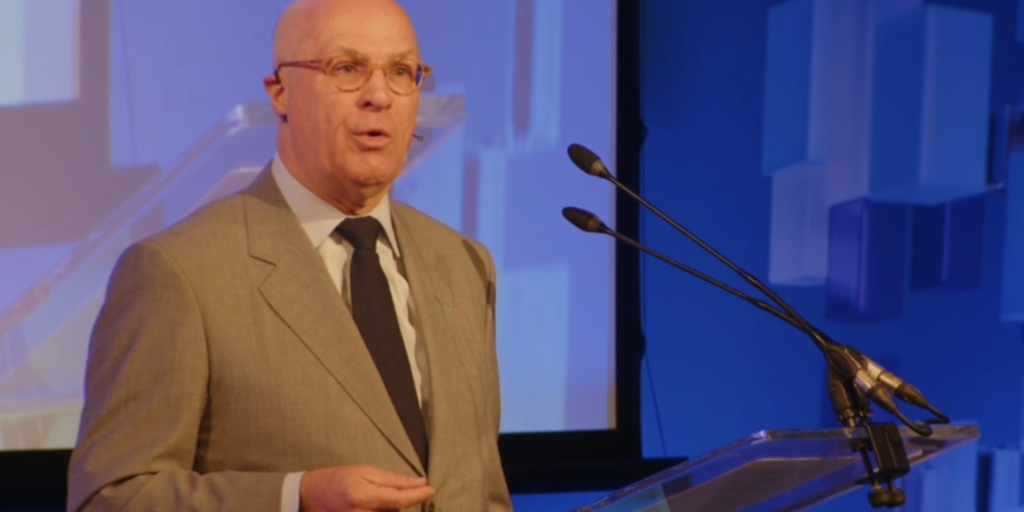
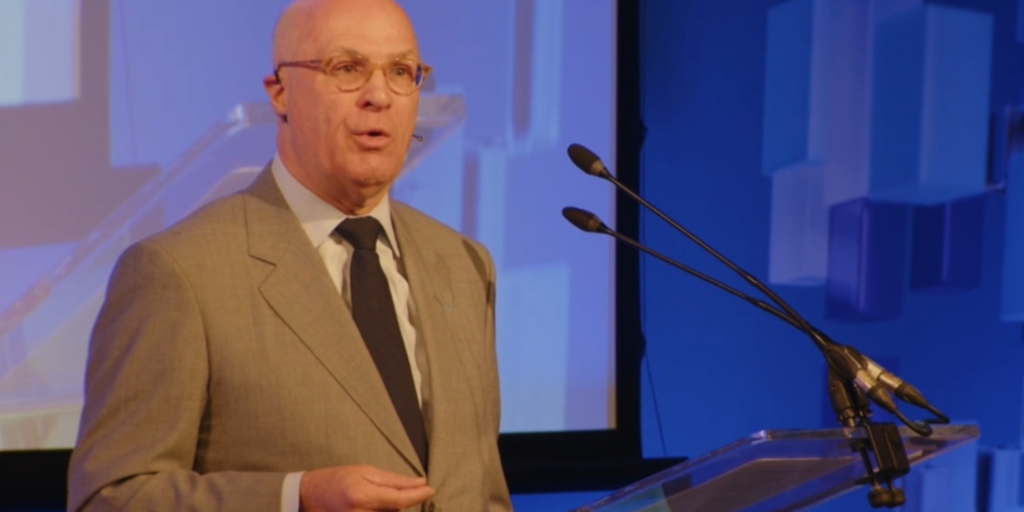
J. Christopher Giancarlo, affectionately known as “Crypto Dad,” dismissed speculation that he is being considered to replace Gary Gensler as head of the Securities and Exchange Commission (SEC).
On Thursday, the former Chair of the U.S. Commodity Futures Trading Commission (CFTC) took to X to deny reports he was seeking the agency’s top job.
“I’ve made clear that I’ve already cleaned up an earlier Gary Gensler[‘s] mess,” he said. “[I] Don’t want to have to do it again.”
He also pushed back against rumors he was seeking “some crypto role” within the U.S. Treasury Department, claiming they were “also wrong.”
The buzz around Giancarlo’s potential return to a regulatory role comes amidst speculation of a shake-up at the SEC following Donald Trump’s re-election, with Gary Gensler’s position as chairman hanging in the balance.
Giancarlo served as a commissioner at the CFTC from June 2014 to April 2019, stepping into the role shortly after Gensler’s departure as CFTC chair.
He earned the nickname “Crypto Dad” as he became a top figure in the crypto community by advocating for crypto innovation during his tenure.
After stepping down from his role, he co-founded the Digital Dollar Project in January 2020, which seeks to promote discussions on the future of “digital monetary innovations.”
Giancarlo has maintained that central bank digital currencies (CBDCs) are not the only path forward, noting that “crypto, CBDCs, stablecoins, and more” is the global future.
President-elect Donald Trump, whose return to the Whitehouse in January marks a significant comeback for the Republican party, has vowed to quash any future CBDC policy.
The crypto community is bracing for the possibility of Gensler’s departure, as Trump has also promised to replace the current SEC chair, whose term runs until 2026.
Giancarlo is not the only name being floated; other pro-crypto candidates include SEC Commissioners Hester Peirce and Mark Uyeda, former Binance.US CEO Brian Brooks, and others.
Gensler, a contentious figure in the crypto space, hinted at his possible departure during a speech at the 56th Annual Institute on Securities Regulation on Thursday.
At the end of the speech, he stated, “It’s been a great honor to serve with them, doing the people’s work, and ensuring that our capital markets remain the best in the world,” referring to his SEC colleagues.
The pressure on Gensler is at an all-time high this week as 18 states, along with the DeFi Education Fund, filed a lawsuit accusing the SEC of overreaching its authority on crypto regulations.
Filed Thursday, the suit alleges that under Gensler’s leadership, the SEC deliberately bypassed standard procedures and withheld new crypto rules to pursue a “regulatory land grab.”
Edited by Sebastian Sinclair
Daily Debrief Newsletter
Start every day with the top news stories right now, plus original features, a podcast, videos and more.
Source link
Law and Order
Strike While the Crypto Iron is Hot Under Trump, Says Andreessen Horowitz
Published
2 weeks agoon
November 11, 2024By
admin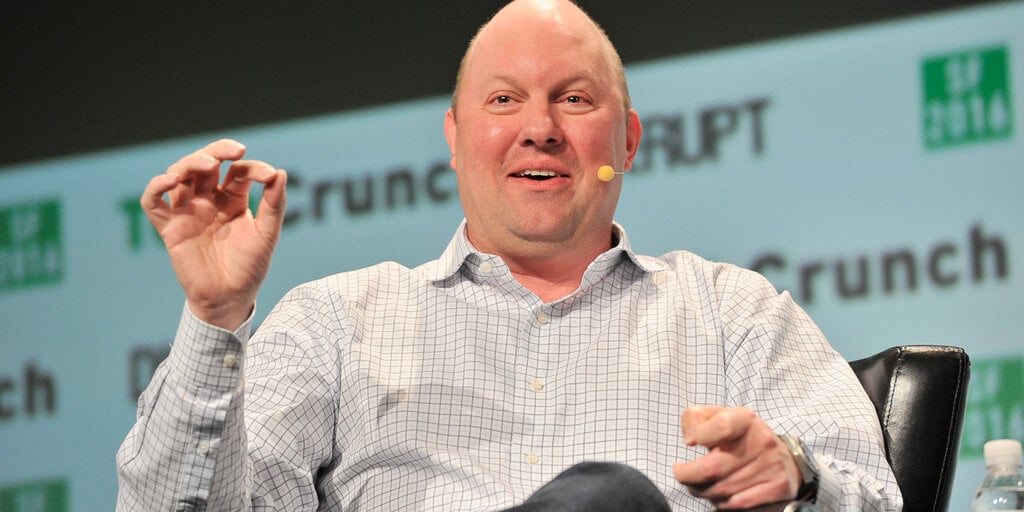
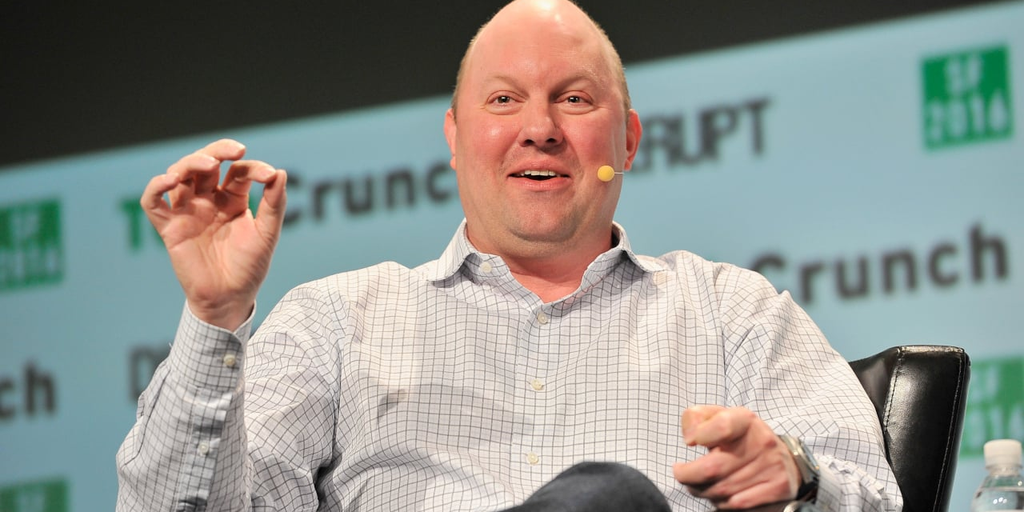
Andreessen Horowitz’s (a16z) crypto arm sees former President Donald Trump’s re-election as a catalyst for a new era in crypto regulation, urging projects to embrace decentralized solutions and build confidently in the U.S.
The venture capital firm, which has invested heavily in crypto and web3 startups, sees Trump’s pro-crypto stance as a way forward, according to a blog post on Monday.
The firm’s crypto legal and policy experts—Miles Jennings, Michele Korver, and Brian Quintenz—outlined how the new political climate could pave the way for regulatory clarity.
With the election now decided, “we believe this is an incredible opportunity to build on the bipartisan progress from the last Congress,” they wrote.
The experts’ core message to crypto founders is to leverage the new administration’s openness towards digital assets. “Where there is trust, there is regulation,” the experts reminded builders, urging them to eliminate centralized dependencies to stay compliant.
The trio notes now is the time for projects that have held back on using tokens due to regulatory concerns. With Trump’s pro-crypto approach, founders should feel confident in using tokens as “legitimate and lawful tools,” according to experts.
“Today’s all-time high, driven by a Trump election win, signals that we are in the midst of a potential paradigm shift into the next phase of growth for crypto,” OKX chief legal officer Mauricio Beugelmans told Decrypt.
Much of the optimism stems from Trump’s campaign promises to ease restrictions on crypto and replace Securities and Exchange Commission Chair Gary Gensler, whose strict enforcement approach has been a thorn in crypto’s side.
“We hope forward-looking regulation that protects the industry and users and cultivates crypto innovation in America will become a bipartisan topic in the future,” Beugelmans added.
Trump’s re-election has sparked enthusiasm in the markets, with Bitcoin reaching new all-time highs well above $80,000.
“The confirmation of Republicans winning the House could provide an additional boost to the risk rally, but we may see some profit-taking in the coming weeks or months as actual policies are tested,” Aurelie Barthere, Nansen’s principal research analyst, told Decrypt.
Edited by Sebastian Sinclair
Daily Debrief Newsletter
Start every day with the top news stories right now, plus original features, a podcast, videos and more.
Source link

Crypto millionaires will be made by April 2025: 6 coins to hold

Cardano Price Hits $1 But Analyst Says This Is Just The Start

Legacy Media’s Transformation: Why Evolution Beats Extinction

Massive Ethereum Buying Spree – Taker Buy Volume hits $1.683B In One Hour

Ethereum lags behind Bitcoin but is expected to reach $14K, boosting RCOF to new high

Bitcoin Miner MARA Buys Another 5771 BTC As Price Nears $100k

Jason "Spaceboi" Lowery's Bitcoin "Thesis" Is Incoherent Gibberish

Bankrupt Crypto Exchange FTX Set To Begin Paying Creditors and Customers in Early 2025, Says CEO

Top crypto traders’ picks for explosive growth by 2025

3 Tokens Ready to 100x After XRP ETF Gets Approval

Gary Gensler’s Departure Is No Triumph For Bitcoin

Magic Eden Token Airdrop Date Set as Pre-Market Value Hits $562 Million

Blockchain Association urges Trump to prioritize crypto during first 100 days

Pi Network Coin Price Surges As Key Deadline Nears

How Viable Are BitVM Based Pegs?
182267361726451435

Top Crypto News Headlines of The Week

Why Did Trump Change His Mind on Bitcoin?

New U.S. president must bring clarity to crypto regulation, analyst says

Ethereum, Solana touch key levels as Bitcoin spikes

Will XRP Price Defend $0.5 Support If SEC Decides to Appeal?

Bitcoin Open-Source Development Takes The Stage In Nashville

Bitcoin 20% Surge In 3 Weeks Teases Record-Breaking Potential

Ethereum Crash A Buying Opportunity? This Whale Thinks So

Shiba Inu Price Slips 4% as 3500% Burn Rate Surge Fails to Halt Correction

‘Hamster Kombat’ Airdrop Delayed as Pre-Market Trading for Telegram Game Expands

Washington financial watchdog warns of scam involving fake crypto ‘professors’

Citigroup Executive Steps Down To Explore Crypto
Mostbet Güvenilir Mi – Casino Bonus 2024

Bitcoin flashes indicator that often precedes higher prices: CryptoQuant
Trending

 2 months ago
2 months ago182267361726451435

 24/7 Cryptocurrency News3 months ago
24/7 Cryptocurrency News3 months agoTop Crypto News Headlines of The Week

 Donald Trump4 months ago
Donald Trump4 months agoWhy Did Trump Change His Mind on Bitcoin?

 News3 months ago
News3 months agoNew U.S. president must bring clarity to crypto regulation, analyst says

 Bitcoin4 months ago
Bitcoin4 months agoEthereum, Solana touch key levels as Bitcoin spikes

 Price analysis3 months ago
Price analysis3 months agoWill XRP Price Defend $0.5 Support If SEC Decides to Appeal?

 Opinion4 months ago
Opinion4 months agoBitcoin Open-Source Development Takes The Stage In Nashville

 Bitcoin4 months ago
Bitcoin4 months agoBitcoin 20% Surge In 3 Weeks Teases Record-Breaking Potential


